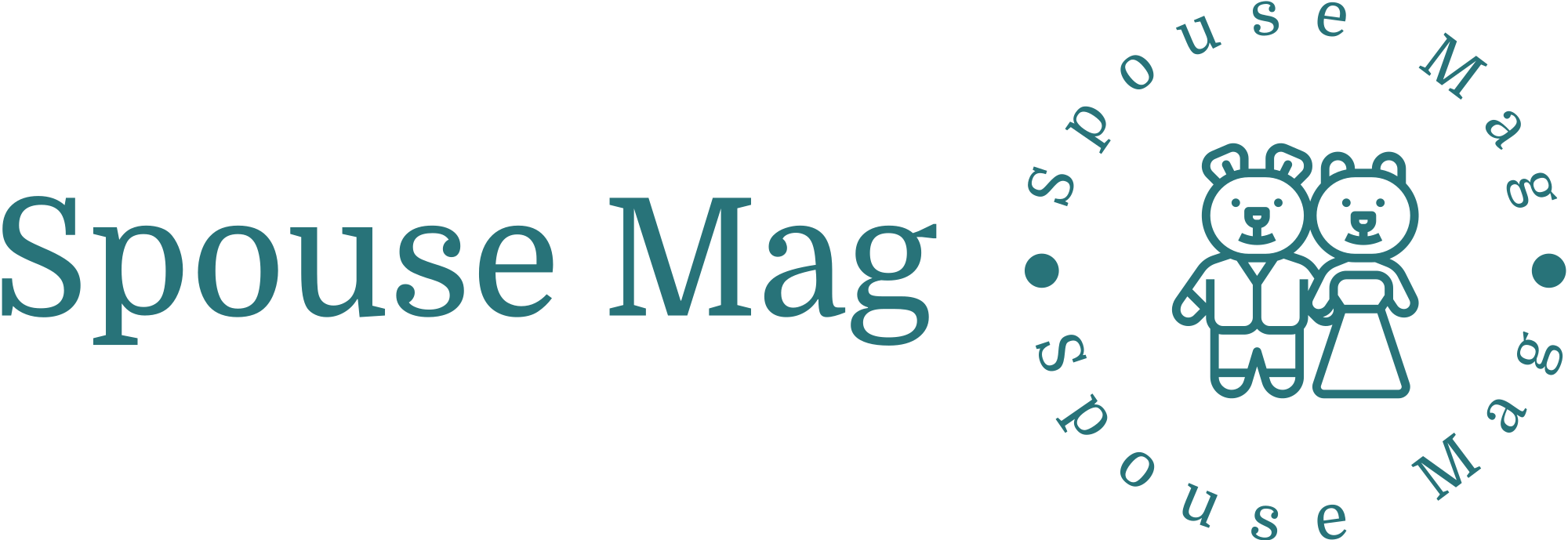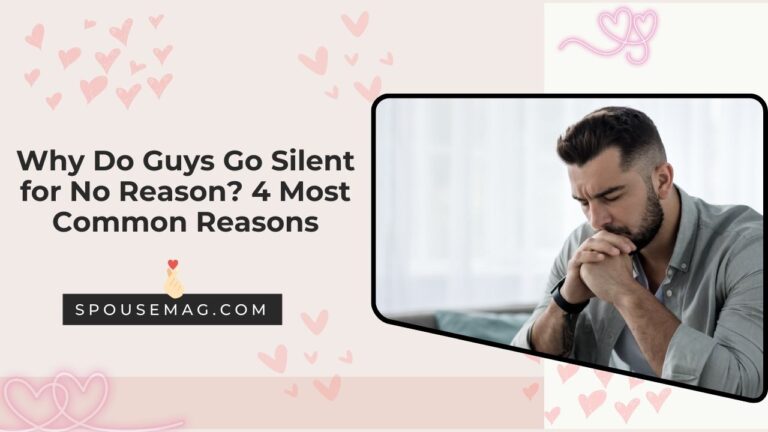
Being compared to an ex can sting. It often leads to feelings of insecurity and confusion. I know this because I’ve been there.
In my last relationship, my boyfriend frequently compared me to his ex. He would often say things like, “My ex used to love this movie,” or “She was always so good at handling these situations.” These comments hurt deeply and left me questioning my worth.
I couldn’t understand why he kept bringing her up, and it made me feel like I was constantly competing with someone from his past.
As time went on, I realized there were underlying reasons for his behavior.
He hadn’t fully moved on from his previous relationship, and he struggled with insecurities that manifested through these comparisons. This was not just about me but also about his unresolved feelings and lack of effective communication.
10 People Told Us Why Does He Compare Me to His Ex
We talked to 10 everyday people in the USA about the matter and here is what they had to say:
1. Sarah, a Teacher, 29, Los Angeles
Sarah sees it from a different angle. “If your boyfriend constantly compares you to his ex, he struggles with unresolved issues. This isn’t necessarily about you, but more about him needing to process his past relationship.”
Sarah emphasized the importance of communication. “Open communication with your boyfriend is necessary. Let him know how these comparisons make you feel and work together to address any lingering issues from his past.”
Read More:
- Why Does a Guy Save My Snaps? 13 Experts Revealed Snapchat Secrets
- Why Do Guys Feel Insecure? The Surprising Reasons You Need to Know
- Why Does a Guy Copy Me? 11 People Told Us the Reasons
- Why Does He Try to Make Me Jealous? 5 Hidden Reasons
2. James, an Engineer, 34, Houston
James believes that comparisons stem from habits formed in previous relationships. “People get used to certain behaviors and traits in their past partners and unconsciously expect the same from their current ones.”
He suggests focusing on your individuality. “Remind your partner of what makes you unique and why he’s with you now. It’s important to establish that you are a different person with your own strengths and qualities.”
3. Emily, a Nurse, 27, Chicago
Emily thinks comparisons indicate deeper insecurities. “When someone compares their current partner to an ex, it reflects their own self-doubt. They fear the same issues arising in the new relationship.”
Emily advocates for reassurance. “Providing your partner with reassurance and understanding helps. Let him know that you are committed to building something new and positive together.”
4. Michael, a Marketing Manager, 31, New York
Michael feels that cultural influences play a role. “In today’s world, social media often glorifies past relationships, making it hard for people to move on completely. This leads to unfair comparisons.”
He stresses the need for self-awareness. “Both partners should work on self-awareness and understanding the impact of their actions. Recognizing and addressing these behaviors leads to a healthier relationship.”
5. Rachel, a Graphic Designer, 25, Seattle
Rachel views it as a lack of closure. “If someone keeps comparing their current partner to an ex, it indicates that they haven’t fully closed that chapter of their life. This is problematic for the new relationship.”
Rachel advises focusing on the present. “Encouraging your partner to focus on the present and the future with you, rather than dwelling on the past, helps both of you move forward together.”
6. Tom, a Software Developer, 28, San Francisco
Tom thinks it is subconscious behavior. “Comparing you to his ex is something he does without realizing it, out of habit. It doesn’t always mean he still has feelings for his ex.”
He suggests gentle reminders. “Gently remind him that such comparisons are hurtful and that every relationship is unique. This helps him become more conscious of his words and actions.”
7. Jessica, a Social Worker, 32, Miami
Jessica believes it indicates unmet needs. “When someone compares their partner to an ex, they try to communicate unmet needs or desires in the relationship, even if it’s not the healthiest way to do so.”
She emphasizes the importance of addressing these needs. “Having an open discussion about what each of you needs from the relationship helps in finding better ways to fulfill those needs without resorting to comparisons.”
8. David, a Chef, 30, Austin
David sees it as a reflection of emotional baggage. “Carrying emotional baggage from past relationships often leads to comparisons. It’s a sign that the person hasn’t fully healed or let go.”
He recommends seeking professional help. “Seeking the help of a therapist provides the necessary tools to address these issues. It’s important to deal with past baggage to build a strong, new relationship.”
9. Sophia, a Journalist, 26, Boston
Sophia thinks comparisons are a defense mechanism. “People sometimes compare their current partners to exes as a way to protect themselves from potential hurt, using their past experiences as a benchmark.”
She suggests building trust. “Working on building trust and showing your partner that this relationship is different and worth investing in helps them let go of their defense mechanisms.”
10. Chris, a Financial Analyst, 29, Denver
Chris believes it is about control. “Some people use comparisons as a way to exert control or to test boundaries within the relationship. It’s a way of seeing how much their partner will tolerate.”
He advises setting firm boundaries. “Establishing firm boundaries and making it clear that such behavior is unacceptable is crucial. Respect and mutual understanding are key to a healthy relationship.”
Why Does He Do That? 5 Reasons
Here are five key reasons why your partner is comparing you to his ex:
1. He Feels Insecure
Comparisons often arise from his insecurities. He may struggle with feelings of inadequacy or fear of losing you. This insecurity prompts him to draw parallels with his past relationship, possibly as a way to gauge his worth or validate his current relationship.
His self-esteem issues reflect how he views the relationship, and these comparisons serve as a misguided attempt to address those insecurities.
In such cases, his behavior points to deeper personal issues that need to be addressed for the relationship to thrive.
2. He Hasn’t Moved On
Unresolved feelings for his ex play a significant role in why he compares you to her. If he hasn’t fully processed the end of his previous relationship, these lingering emotions interfere with his ability to fully commit to a new partner.
He may nostalgically hold on to certain aspects of his past relationship, leading to these comparisons.
This behavior signals that he needs more time and possibly professional help to heal and move forward. Recognizing this as a sign of unfinished emotional business helps in understanding the root cause of the issue.
3. He’s Expressing Needs
Comparing you to his ex often serves as a means of expressing unmet needs or desires in your relationship. He may miss specific qualities or behaviors that his ex exhibited and, instead of directly communicating his needs, he resorts to comparisons.
This indicates a lack of effective communication skills where he struggles to articulate his desires openly.
By identifying this pattern, you can work on improving communication and addressing these underlying needs constructively. It promotes a healthier relationship dynamic.
4. He Lacks Communication Skills
Some individuals struggle significantly with direct communication. Instead of openly discussing their feelings or needs, they resort to comparisons as a misguided way to communicate.
This indirect approach often stems from past relationship habits or general discomfort with vulnerability.
Understanding this behavior as a communication issue allows you to address it with empathy and work towards improving your partner’s ability to express himself directly.
Encouraging open dialogue about feelings and expectations helps in building a more transparent and understanding relationship.
5. He’s Testing Boundaries
In certain cases, comparisons serve as a way for him to test boundaries and gauge your reactions. This behavior is a form of control or a way to see how much you tolerate. It indicates deeper issues of respect and power dynamics in the relationship.
Addressing this promptly is crucial to ensure a respectful and loving relationship.
Establishing firm boundaries and communicating the impact of his behavior helps in setting the groundwork for mutual respect and understanding.
How to Deal With It?
Now that we’ve explored the reasons, let’s discuss how you can address this situation.
Clear Communication: Talk openly and honestly with your partner about how the comparisons make you feel. Use “I” statements to express your emotions and avoid blaming or accusing language.
Setting Boundaries: Set clear boundaries and express what kind of communication is healthy for you. Focus on the present relationship and avoid dwelling on the past.
Recognizing Your Worth: Remember your unique value and avoid falling into the trap of self-doubt. You are not in competition with anyone, and your worth is not defined by someone else’s opinions.
Conclusion
You deserve to be in a loving relationship where you are appreciated for who you are. If you’re struggling with constant comparisons to an ex, remember that you’re not alone.
Reach out to resources like hotlines (e.g., National Domestic Violence Hotline: 1-800-799-7233) and websites (e.g., National Coalition Against Domestic Violence) for support and guidance.
Remember, your worth is not defined by someone else’s words or actions. You are valuable, deserving of love, and worthy of respect.

As a married wife, founder, and editor of SpouseMag.com – these guides are based on my own personal experiences, observations, research and insights. I am transparent about being inspired by the life and work of the two greatest experts in the relationship space – Dr. John and Julia Gottman, and Harville and Helen. They two are some of the strongest couples, researchers, authors, and counselors when it comes to marriage and relationships. My advice and guides are based on my insights and research, and they are not an alternative to professional advice.






